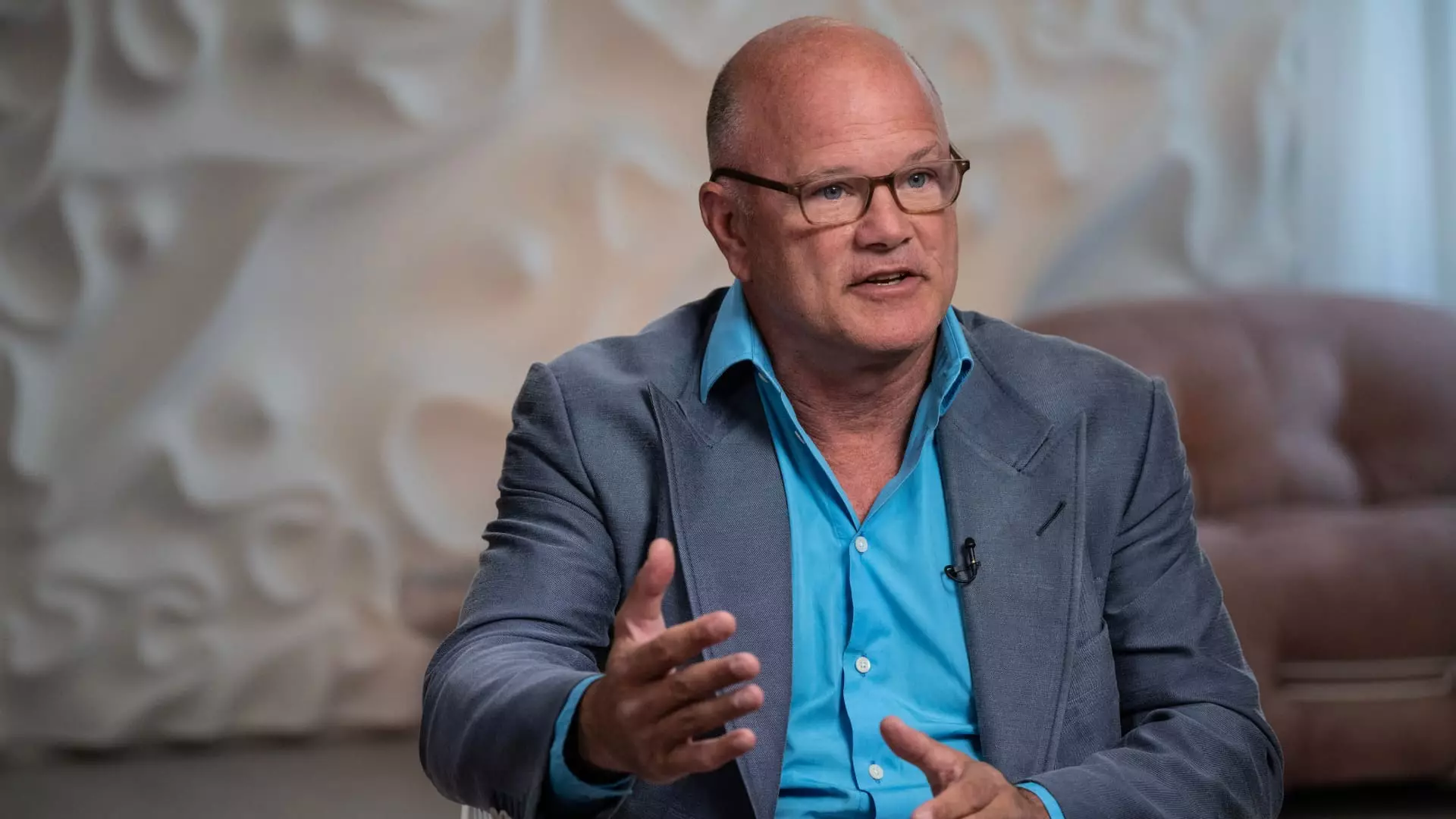Mike Novogratz’s venture with Galaxy Digital epitomizes the trials and tribulations that many cryptocurrency firms have faced in their quest to enter the public sphere. The billionaire investor invested not just money—over $25 million—but a staggering four years of effort to navigate the rocky path of U.S. IPO regulations. His sentiments resonate deeply within the crypto community. The frustrations he articulated, characterizing it as “un-American” and “infuriating,” highlight a systemic challenge faced by innovators in a rapidly evolving sector that often finds itself in regulatory limbo.
The extended duration of the process, stretching to a staggering 1,320 days, reflects a broader issue within the U.S. regulatory framework. Novogratz’s experience serves as a cautionary tale for aspiring startups; the protracted nature of regulatory approvals underscores the actuality that succeeding in the crypto space requires not only an innovative idea but also substantial financial backing and resilience. His experience serves as both a warning and encouragement: the right vision in the face of regulatory hurdles can lead to groundbreaking results.
Financial Scrutiny: A Double-Edged Sword
Upon achieving his goal of listing Galaxy Digital on the Nasdaq under the GLXY ticker symbol, Novogratz remarked on a significant aspect of the crypto industry: the elevated auditing costs that come with operating in a heavily scrutinized sector. It’s a double-edged sword that only the most robust companies can wield effectively. The inflated audit fees, which he claims are about to decrease by a substantial 40%, illustrate the unchartered waters players in this space must navigate.
The strenuous demands placed on a cryptocurrency firm, due to the regulatory microscope, can be both a burden and a catalyst for growth. While some might falter under financial pressure, Novogratz claims that the hardships made Galaxy Digital more resilient. This “scarcity makes you tougher” mentality encapsulates a vital philosophy in entrepreneurship: adversity breeds strength. Not only did Galaxy adapt; it thrived, funded largely through internal trading and investment gains rather than relying on external investments during the regulatory delay.
Changing Landscape: A New Era for Crypto in the U.S.
As Galaxy Digital makes its public debut on the Nasdaq, the landscape for cryptocurrency firms in the U.S. is beginning to shift, which Novogratz keenly observes. He notes that the appetite for fintech IPOs is gradually returning, with firms such as eToro successfully navigating their listings. This could signal a renewed interest and acceptance of digital assets among investors who had previously adopted a cautious approach due to market volatility and regulatory uncertainty.
For Novogratz, the difference between operating in Canada and the U.S. is stark. Commenting on the depth of the U.S. market, he stated, “Our visibility, volume, and notoriety in the Canadian market versus the U.S. is one to 30.” His assertion underscores the reality that the U.S. represents an unprecedented opportunity for companies wishing to tap into the full potential of the investment landscape.
Realistically, had Galaxy Digital made its U.S. debut sooner, the trajectory of its growth would likely have been considerably different. Novogratz’s acknowledgment of lost opportunities serves as a poignant reminder of the unpredictable nature of regulatory environments affecting not just crypto but innovation across sectors.
The Political Game: Crypto Influencing Washington
Navigating the corridors of power in Washington, Novogratz has witnessed firsthand the transformation of cryptocurrency from a niche curiosity to a topic of serious political discussion. Notably, during a high-profile inauguration event, he was struck by the presence of multiple crypto industry leaders mingling with policymakers. This growing representation is significant—not just for those within the crypto sphere but for the broader narrative shaping U.S. financial regulation.
The acceptance of cryptocurrency by a substantial faction of the Democrat party is a noteworthy shift. Novogratz insists that many political leaders seek constructive legislation to bring clarity to the industry. This sentiment of navigating toward a unified legislative framework signifies a desire to balance innovation and oversight, and it’s essential for the continued growth of the crypto economy.
The political landscape, shaped by the election of Donald Trump, seemingly opened dialogue channels among regulators who had previously been resistant. The meeting he had with incoming SEC Chair Paul Atkins, marked by an openness to pro-business policies, offers hope for a more progressive regulatory environment in the future. The transformation of perceptions within the halls of power may very well dictate the pace of innovation and growth for years to come.
A Proactive Future: Ringing the Opening Bell
For Novogratz, the act of ringing the opening bell on the Nasdaq is not simply a triumphant milestone; it symbolizes the beginning of a new chapter filled with opportunities and challenges alike. He captures this sentiment perfectly by stating, “Ringing the bell is kind of the starting line, not the finish line.” This declaration resonates powerfully within a community that thrives on the spirit of perseverance and continual evolution.
As Galaxy Digital embarks on its new journey within the U.S. market, it stands as a testament to the resilience required to push through adversity. The challenges faced by Novogratz and his company are reflective of a larger struggle within the crypto industry, one defined by ambitions, regulatory hurdles, and an unwavering commitment to lead the charge into the future of finance.


Leave a Reply